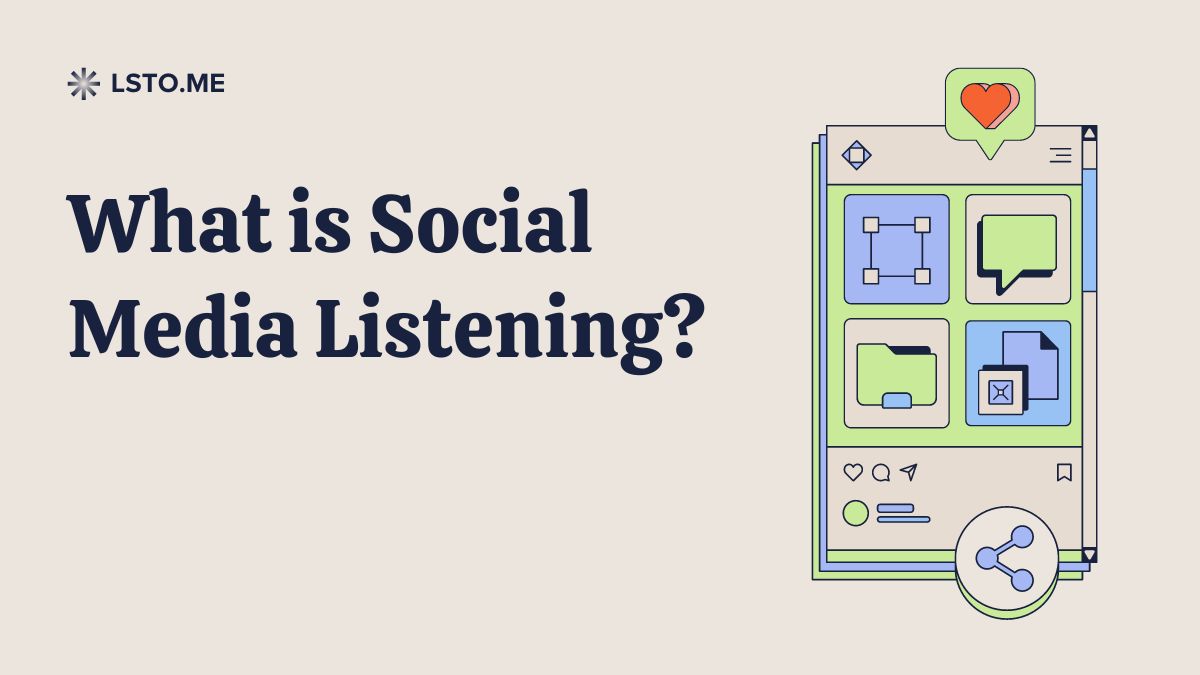
In the era of social media, businesses have a unique opportunity to listen to their audience and gain valuable insights. Social media listening, also known as social media monitoring or social media intelligence, involves actively tracking and analyzing online conversations to understand customer sentiments, preferences, and trends. In this blog post, we will delve into the concept of social media listening, its benefits, and how businesses can effectively implement it to enhance their marketing strategies.
1. Defining Social Media Listening:
Social media has completely transformed the way we communicate with one another. It’s no longer about face-to-face interactions, but rather online conversations taking place on social media platforms. With over 3 billion users worldwide, it’s no wonder that businesses are turning to these platforms to engage with their audience.
The process of social media listening can be described as monitoring and analyzing social media platforms for information. This approach allows businesses to stay up-to-date with what their customers are saying about them online. It involves tracking mentions of a company’s brand or product, analyzing trends in conversations, identifying influencers, and monitoring competitors’ activity.
By leveraging social media listening tools, brands can gain insight into customer feedback and preferences and use that information to improve their overall business strategy. Brands can also use this data to create more targeted marketing campaigns that resonate with their audience.
The Importance of Social Media Listening:
Social media listening is becoming increasingly important in today’s digital age. It involves monitoring and analyzing social media channels for mentions of a brand, product, or service. By actively listening to social media conversations, businesses can gain invaluable insights into customer preferences, needs, and pain points.
One key benefit of social media listening is the ability to identify emerging trends and market shifts. By tracking relevant keywords and hashtags across various platforms, companies can gain real-time insight into what their customers are talking about and adjust their marketing strategies accordingly. For example, if a particular product feature receives significant attention on social media, a company may decide to prioritize its development or promotion.
Another advantage of social media listening is its potential to improve customer satisfaction. By engaging with customers who are discussing their experiences online, businesses can address concerns promptly and provide timely support when needed.
Benefits of Social Media Listening:
a. Understanding Customer Sentiments:
Social media listening allows businesses to gauge customer sentiments towards their brand or industry. It helps identify positive, negative, or neutral sentiments, providing an opportunity to address concerns, resolve issues, and reinforce positive experiences.
b. Identifying Trends and Influencers:
By monitoring social media conversations, businesses can identify emerging trends, popular topics, and influential individuals within their industry. This knowledge enables them to stay ahead of the curve, engage in relevant discussions, and collaborate with key influencers to amplify their brand’s reach.
c. Competitive Analysis:
Social media listening offers businesses insights into their competitors’ activities, customer feedback, and brand perception. Analyzing competitor mentions and sentiment can provide a competitive advantage by identifying areas for improvement or differentiating strategies.
d. Crisis Management and Brand Reputation:
Social media listening is essential for effective crisis management. By monitoring and promptly addressing negative conversations, businesses can mitigate potential reputation damage, demonstrate transparency, and rebuild trust.
Implementing an Effective Social Media Listening Strategy:
a. Choose the Right Tools:
There are numerous social media monitoring tools available that offer features such as keyword tracking, sentiment analysis, and real-time alerts. Select a tool that aligns with your business objectives and budget.
b. Define Goals and Metrics:
Clearly define your objectives for social media listening, whether it’s tracking brand sentiment, improving customer service, or identifying new opportunities. Establish relevant metrics to measure progress and success.
c. Monitor Relevant Platforms and Keywords:
Identify the social media platforms where your target audience is active and determine the keywords and hashtags relevant to your industry. Monitor these platforms and keywords consistently to gather comprehensive data.
d. Analyze and Act:
Regularly review the data collected through social media listening. Analyze sentiment patterns, identify key themes, and extract actionable insights. Use this information to inform your marketing strategies, content creation, customer engagement, and product/service improvements.
Conclusion:
Social media listening empowers businesses to listen, understand, and engage with their audience effectively. By actively monitoring and analyzing social media conversations, businesses can unlock valuable insights, enhance their marketing strategies, and build stronger relationships with their customers. Embrace the art of social media listening to gain a competitive edge, stay attuned to customer needs, and drive business growth in the dynamic landscape of social media.




